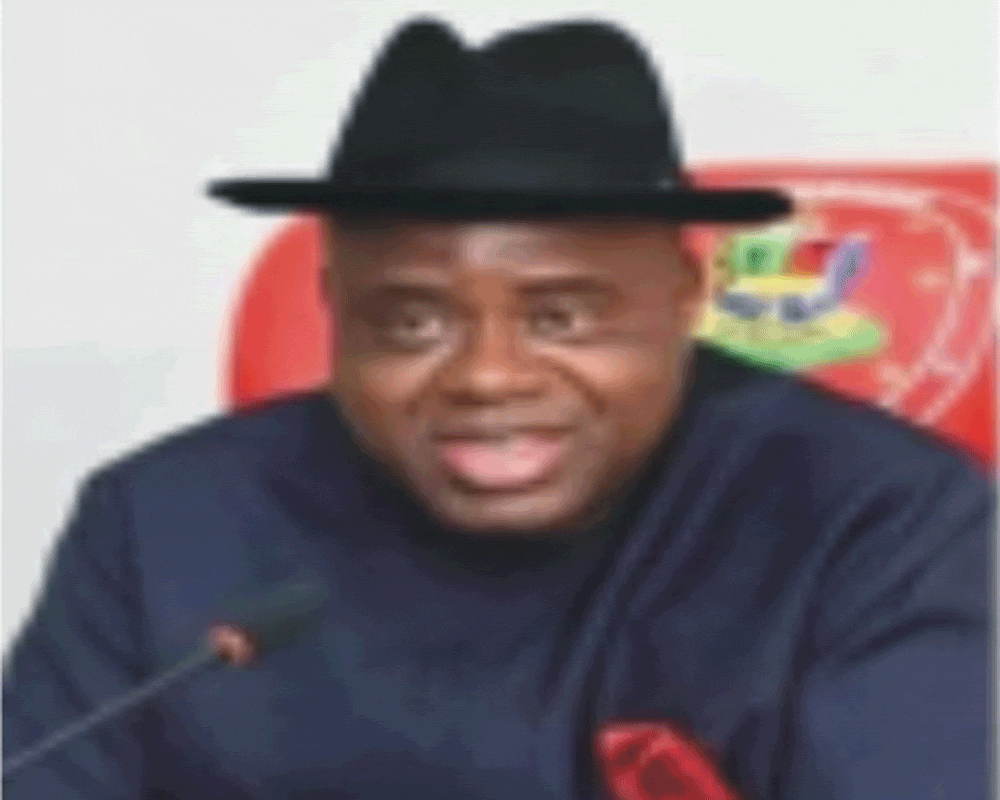Throw Away Sylva’s Appeal Against Gov Diri, S’Court Urged

In a significant legal confrontation over the outcome of the Bayelsa State gubernatorial election, Governor Douye Diri, along with the Independent National Electoral Commission (INEC) and the People’s Democratic Party (PDP), has called upon the Supreme Court to dismiss the appeal filed by the All Progressives Congress (APC) candidate, Timipre Sylva. The appeal, which challenges Diri’s election as governor, was described by the respondents as fundamentally flawed and lacking merit.
The Bayelsa State gubernatorial election, which took place last year, culminated in the victory of Douye Diri, the candidate of the PDP. The election was fiercely contested, particularly by Timipre Sylva of the APC, who subsequently filed a petition challenging the legitimacy of the results declared by INEC. Sylva’s petition was predicated on allegations of widespread irregularities, malpractices, and non-compliance with electoral laws during the election process.
The case first went through the Bayelsa State Governorship Election Petition Tribunal and then the Court of Appeal, both of which dismissed Sylva’s petition. Dissatisfied with these outcomes, Sylva escalated the matter to the Supreme Court, seeking a reversal of the earlier judgments and the declaration of himself as the rightful winner of the election.
During the proceedings held on Monday, Governor Diri, represented by Senior Advocate of Nigeria (SAN) Chris Uche, made a compelling argument before the apex court, urging it to uphold the decisions of the lower courts. Uche asserted that Sylva’s appeal was not only baseless but also irredeemably flawed. According to Uche, the appeal failed to provide any credible evidence, whether in the form of witness testimony or documentary proof, to substantiate the claims of electoral malfeasance. He argued that the petition lacked the substance required to overturn the will of the electorate, as expressed in the official election results.
INEC, the electoral body responsible for conducting the election, also stood firmly behind the legitimacy of the results. Represented by Charles Edoshomwan, SAN, INEC aligned itself with Governor Diri’s position, emphasizing that the election was conducted in accordance with the law and that the results accurately reflected the votes cast by the people of Bayelsa State. Edoshomwan further argued that Sylva’s appeal was a mere attempt to undermine the democratic process without any factual or legal basis.
Similarly, the PDP, through its legal representative, Tayo Oyetibo, SAN, echoed the sentiments expressed by Diri and INEC. Oyetibo described Sylva’s appeal as lacking in merit and called on the Supreme Court to dismiss it in its entirety. He argued that the lower courts had thoroughly examined Sylva’s claims and found them wanting, and there was no justification for the Supreme Court to arrive at a different conclusion.
On the other hand, Timipre Sylva, represented by Onyechi Ikpeazu, SAN, passionately argued for the Supreme Court to overturn the judgments of the lower courts. Ikpeazu contended that the tribunal and the Court of Appeal had erred in their dismissal of Sylva’s petition. He maintained that the election was marred by significant irregularities that compromised its integrity and that these issues were sufficient grounds for the Supreme Court to annul Diri’s election.
Ikpeazu urged the Supreme Court to carefully consider the evidence presented in the original petition, which he claimed was sufficient to prove that the election was neither free nor fair. He argued that INEC’s declaration of Diri as the winner was flawed and urged the apex court to set it aside, declaring Sylva as the lawful winner of the gubernatorial poll.
After hearing the arguments from all parties involved, the panel of justices, led by Justice Garba Lawal, reserved judgment on the case. The court did not immediately announce a date for its decision, stating that the judgment would be delivered at a later date, which would be communicated to the parties.
The outcome of this appeal holds significant implications not only for the political landscape of Bayelsa State but also for the broader context of electoral jurisprudence in Nigeria. A ruling in favor of Sylva could potentially alter the state’s leadership, while a dismissal of the appeal would further solidify Diri’s position as governor, reinforcing the decisions of the lower courts. The ongoing legal battle over the Bayelsa State governorship election underscores the contentious nature of electoral politics in Nigeria. As the parties await the Supreme Court’s judgment, the case serves as a critical test of the judiciary’s role in upholding the integrity of the electoral process. Both the petitioner and respondents have presented their arguments with vigor, leaving the final decision in the hands of the nation’s highest court. The judgment, when delivered, will not only resolve the dispute in Bayelsa but will also send a powerful message about the rule of law and the sanctity of democratic elections in Nigeria.




